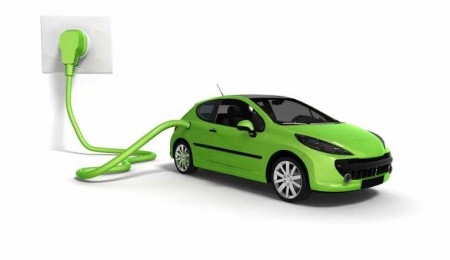November 23, 2015 – First time guest blogger, Sam Lewis, is a freelance writer who contributes to several international media outlets. He holds a degree in journalism, and is currently taking his master’s degree at University of Florida. In this posting Sam talks about hybrid and electric vehicles and often mistaken belief that they represent a low-carbon alternative to conventional gas and diesel transportation options. Please feel free to comment here.
———-
In February of this year, the Kent Fire Department in the state of Washington was featured for their dedication to a greener world because they switched from gasoline fueled vehicles to two Nissan Leafs. The idea was that these cars would help reduce the fire department’s carbon footprint because they would produce no emissions and require less maintenance. Using these cars today was seen as making Kent greener.
It can be argued, however, that quite the opposite is true. In a recent Scientific American podcast, authored by David Biello, the notion that electric vehicles (EVs) are cleaner is questioned. It stated that a “host of factors determine the role of electric and hybrid cars in reducing greenhouse gas pollution.” This means that EVs and hybrid cars provide no guarantee of a greener tomorrow. In fact, the two technologies may make the environment worse depending on how much coal is burned to create the electricity stored in EV batteries, and the impact of disposing or recycling the materials contained in the batteries.
The reason why scientists are skeptical about this matter is because advances in battery technology are not happening fast enough. Will batteries get lighter? Will they be cheaper? Will the chemicals and materials used in them be more environmentally friendly? Can batteries answer the energy demand of our future world?
Much depends on governments committing themselves to putting limits on carbon dioxide. Only then will coal-fired power plants no longer be the energy source for recharged EVs. In some sense today’s EVs in the United States run on coal because coal-fired power plants remain the largest source of electricity.
In the Scientific American podcast it mentions that researchers ran 108 different computer simulations on how driving might change in the next few decades. According to the results, it would seem that the key to reducing carbon dioxide and other greenhouse gas pollutants isn’t dependent on how many EVs people use. What matters most is whether or not regulations are in place that enforce emission reductions. This means cars, as many people would think, aren’t the biggest greenhouse gas threat. Factories, power plants and power-hungry machinery running on energy from coal and other fossil fuels are if anything a bigger factor. That’s why turning to EVs alone is not enough to green the United States, not unless government legislation mandates carbon emission reductions for the entire economy.

















Coincidentally the Washington Post published a comprehensive look at EVs and from where they get their electricity. The article, entitled, Electric Cars and the Coal That Runs Them, is by Michael Birnbaum. Here’s the link: https://www.washingtonpost.com/world/electric-cars-and-the-coal-that-runs-them/2015/11/23/74869240-734b-11e5-ba14-318f8e87a2fc_story.html?ncid=newsltushpmg00000003
The situation of USA energy matrix (powered mainly on coal) is not the same of the rest of the world. BTW electric motors are more efficient and less noisy than fuel ones.